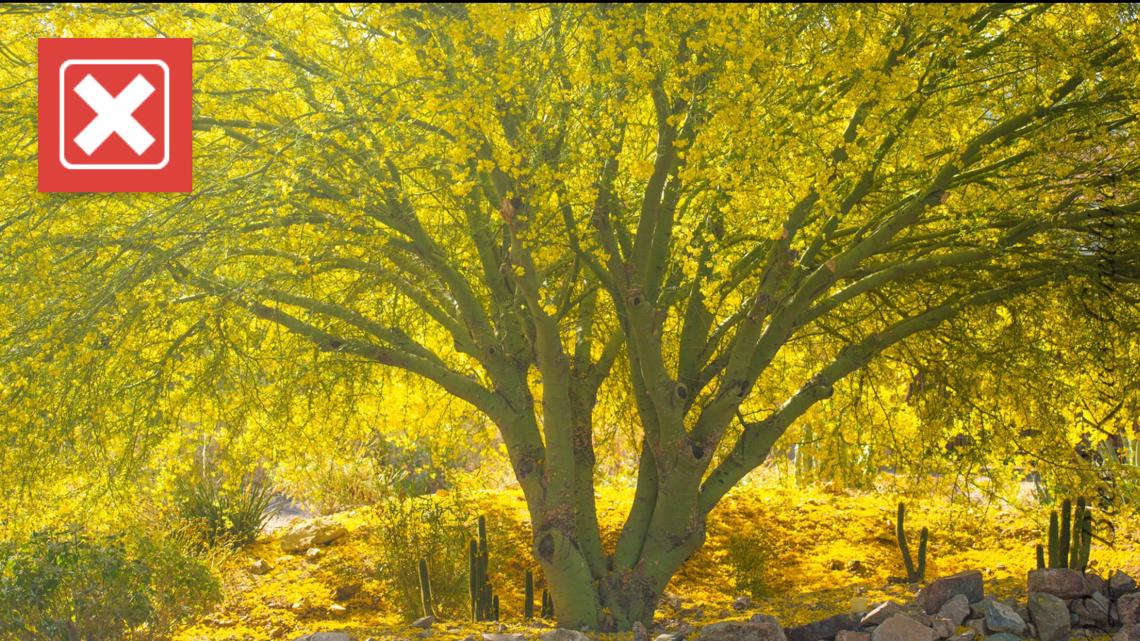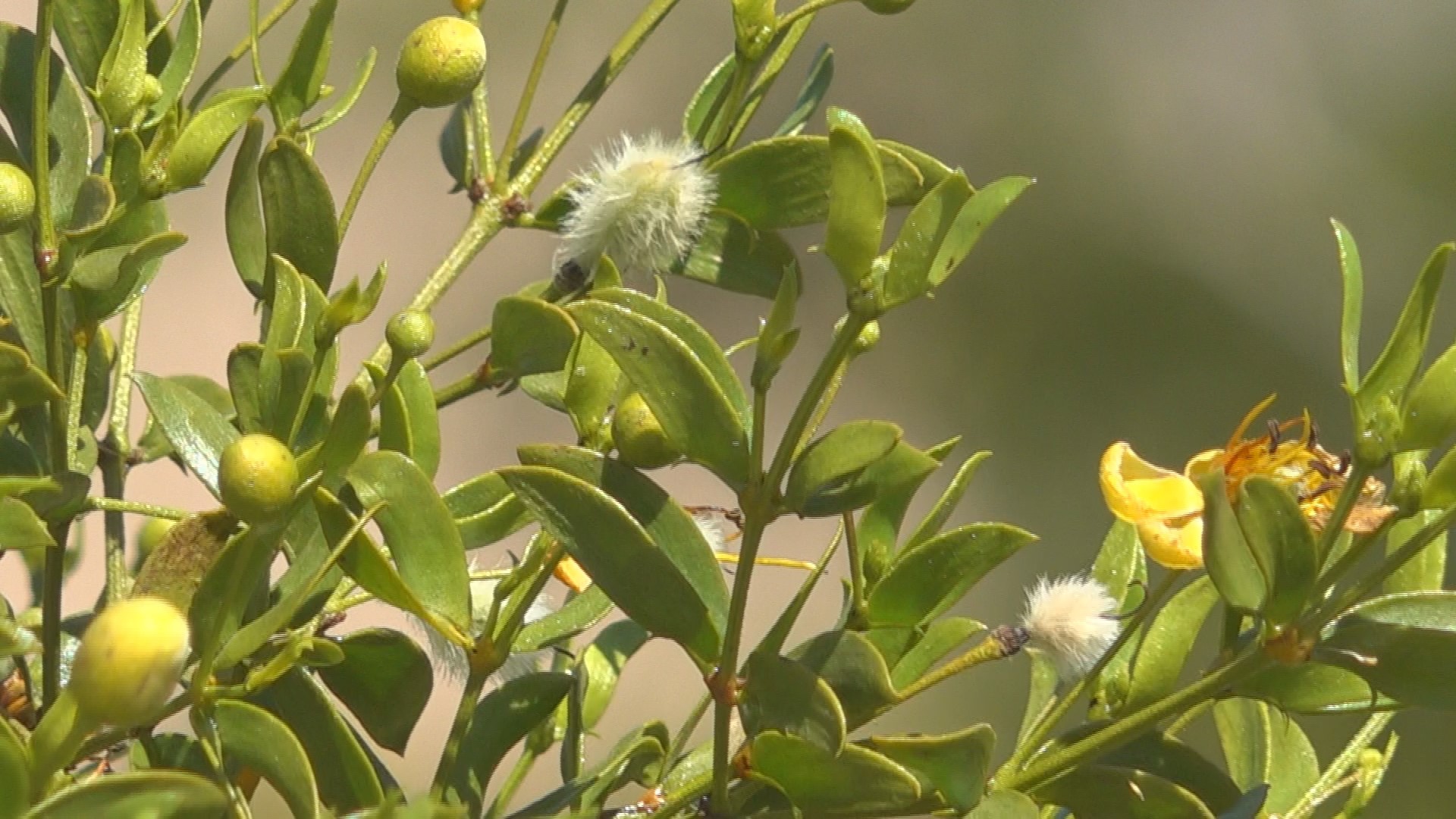PHOENIX — Sneezes, sniffles, itchy eyes and irritation; one of the most popular myths about Arizona is that it's a haven for allergy sufferers. That's simply not true.
What is even more crazy, doesn't it seem like your allergies have been worse this year?
You're not crazy — climate change is impacting Arizona's allergy seasons and steadily making them worse, experts found.
VERSIÓN EN ESPAÑOL: ¿Sus alergias parecen empeorar? Las temperaturas más altas están cambiando la temporada de alergias en Arizona
Around the country, warmer temperatures are leading to longer growing seasons. With spring coming sooner and sooner, plants have more time to make and release allergy-inducing pollen into the air. As for the Valley? We're catching a unique kind of double whammy.
"What matters is that we've got a bimodal growing season," USA National Phenology Network director Theresa Crimmins explained. "We have a number of plants that flower in the spring [...] then taper off once we get into the really hot months. Then it's a little quiet until we start seeing those monsoon rains, which then invite a whole lot of other species to start flowering."
This means that rainy winters and heavy monsoons make for two separate allergy season surges. Dr. Jennifer Hill, a Phoenix-based allergist said she's already seeing a huge number of patients.
"Allergy season, in general, has been longer over the past couple of years, in part due to the fact that we've had quite a bit more rain," Hill said. "Our temperatures here tend to be more dry and warm — and it's getting warmer year after year. That's impacting pollen season a lot."
We took a look into what allergy sufferers in Arizona have to deal with and how they can find some relief.
Arizona's seasonal allergies
Home to almost 4,000 species of native plants, Arizona is one of the most ecologically diverse regions in the United States. But it's only a small section of plants causing allergies to act up — specifically the ones that use the wind to pollinate.
"The plants that rely on the wind to achieve pollination for them produce abundant pollen, and the grains are really small and lightweight," Crimmins said. "So don't blame the beautiful showy palo verdes and other plants that have pretty flowers."


That's right. Those bright yellow sidewalk-covering palo verde flowers? Those are pollinated by beetles and flies. Their pollen is too heavy and sticky for you to breathe in.
Here's what Hill and Crimmins agree really gets our noses running in Arizona:
- Olive trees
- Ash trees
- Mullberry trees
- Mesquite trees
- Pine trees
- Ragweed
- Grasses (especially Bermuda grass)
- Tumbleweed
Hill explained that allergies in Arizona are particularly severe from March through June. But as our global climate changes, she's seeing a big bump in allergy symptoms starting in late February.
"With those warmer temperatures and the increased CO2 in the atmosphere, plants are growing; they're starting their flowering season earlier, they're extending it longer and they're producing more pollen overall," Crimmins said.
Pollution can also directly worsen allergies as it interacts with airborne pollen.
"When you have a lot of pollution and a high pollution count, then that actually can impact the pollen granules as well because it can break the cell wall of the pollen granules and cause them to be more allergenic," Hill said.
Dust, ozone and wildfire smoke can cause the same thing in addition to being irritants in their own right. Hill noted that the Valley's rising population (and pollution) is worsening that effect. Likewise, Crimmins has observed that artificial light in urban environments is causing plants to flower earlier in the year.
All those factors combined make for a nasty pair of surges in our nearly year-round allergy season.
What can be done about it?
The good news is that allergies can be dealt with, and Hill gave us a look into how allergists recommend tackling your symptoms.
"People ask me what do I do for these allergies that are driving them crazy. And I really like to break it down for patients just really straightforward and simple with a three-prong approach."
1. Allergen avoidance
It may seem obvious but try to limit exposure to things you are allergic to. Hill recommends staying inside when the pollen count is high, keeping windows and doors shut, changing the air filters in your home and car and showering when you've spent a long time outdoors.
2. Medication
If staying away from airborne pollen isn't doing enough, there are plenty of medicines that can help pick up the slack.
"Many of these are over-the-counter medications that can provide significant relief for the nasal congestion. Nasal steroid sprays are really the backbone of our allergy treatment — very, very effective."
Oral and eye-drop antihistamines are also recommended for relieving symptoms.
3. Allergen-specific immunotherapy
Sometimes, it's time to break out the big guns. For allergy sufferers with severe symptoms or who are "just tired of dealing with it," local allergists can offer specialized treatment plans to help get your immune system used to the allergens.
"We can desensitize your immune system for the specific things you're allergic to. So in future seasons, you don't have those symptoms that you're experiencing. You're just really less allergic to those things over time," Hill explained.
She says that this treatment method helps provide long-lasting relief for patients. As allergy seasons get longer and more severe, more people are finding that it's the way to go.
For a full list of board-certified allergists and immunologists, you can click here to visit the Arizona Allergy & Asthma Society's website.
>> Download the 12News app for the latest local breaking news straight to your phone.
ARIZONA WEATHER
Drought, wildfires, heat and monsoon storms: Arizona has seen its fair share of severe weather. Learn everything you need to know about the Grand Canyon State's ever-changing forecasts here.

